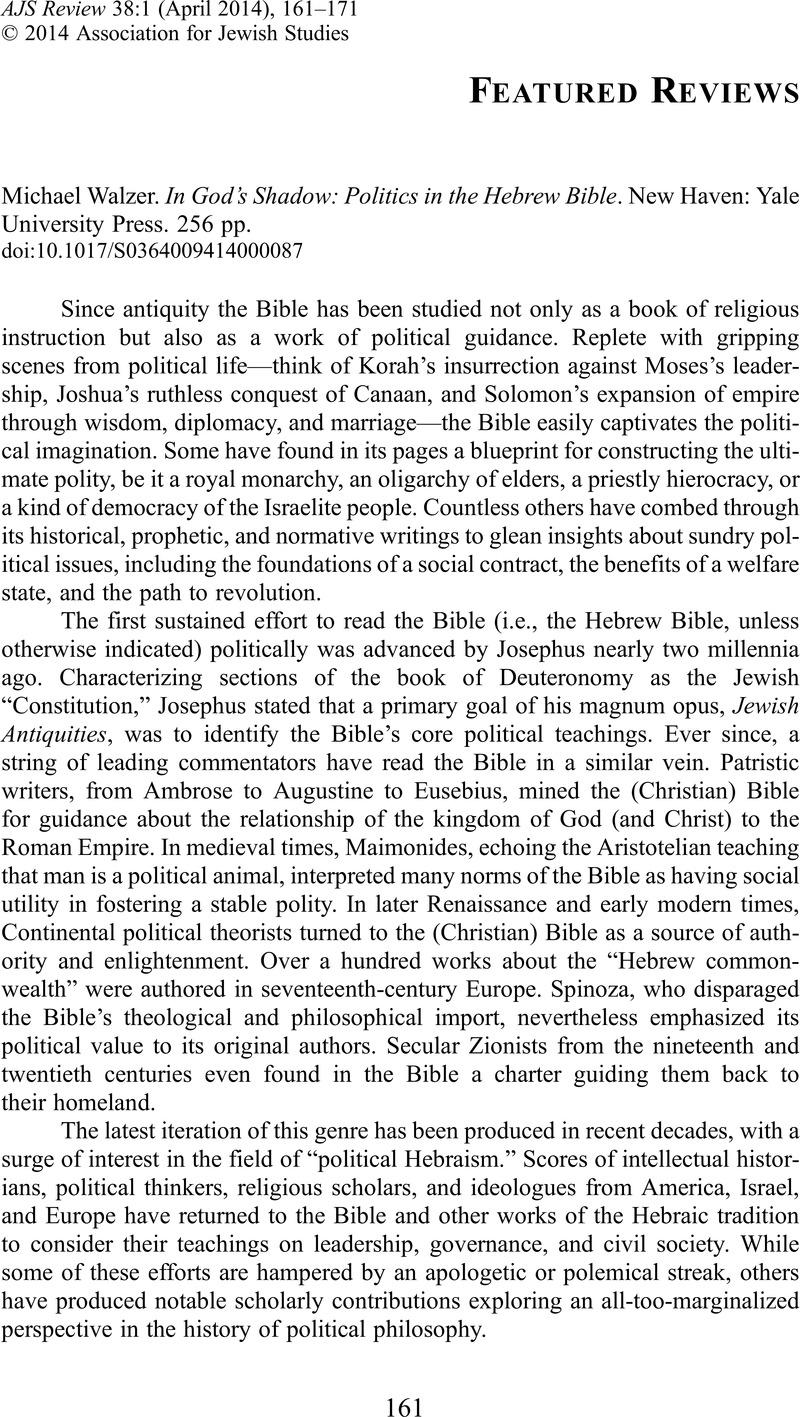No CrossRef data available.
Published online by Cambridge University Press: 02 May 2014

1. Interestingly, at the end of his book Walzer mentions the rise of legalism as a discrete and extrapolitical development in postbiblical rabbinic literature, but misses its antecedents—and its distinct political overtone arising from its covenantal form—in the Bible. Indeed, before rabbinic literature, it is Josephus, through his political reading of the Bible, who concludes that the optimal political regime is a theocracy (rather than a monarchy, oligarchy, or democracy), by which he means, as I have argued elsewhere, God's rule through law.